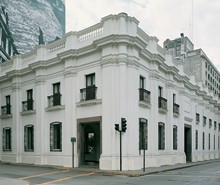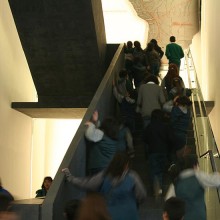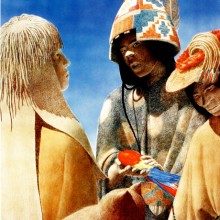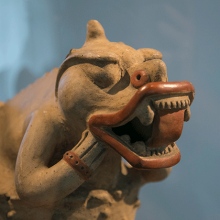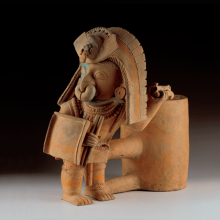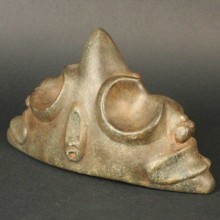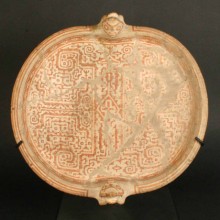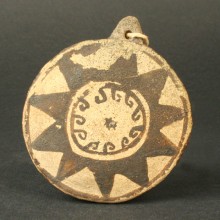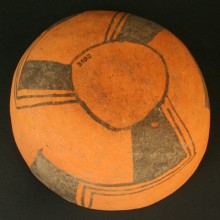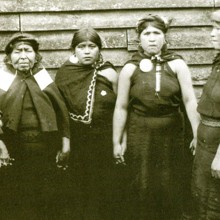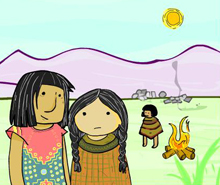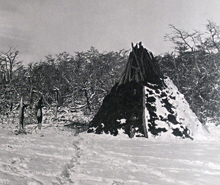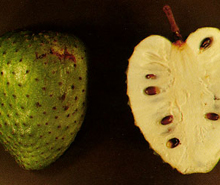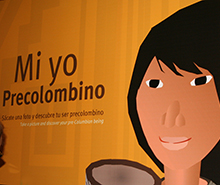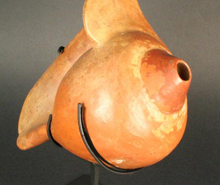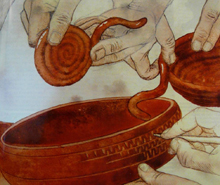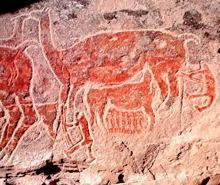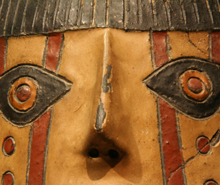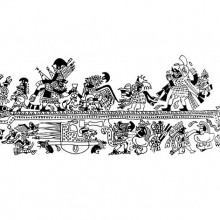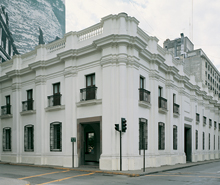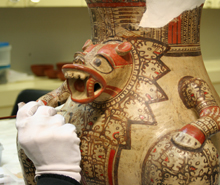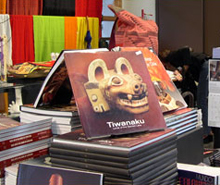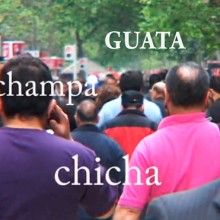Chile under the Inka Empire – 2009
Continuity
The inka live on in chile through myths, place names and everyday words
Researchers are unsure whether the pronounced Inka influence on modern-day Chilean culture is due more to the Empire’s occupation of the region in pre-Hispanic times or to later events, such as the arrival of large number of Inka yanakonas, or servants, who were brought from Peru by the colonial Spanish. In any case, the influence is most clear in the innumerable place names found in Chile with clear Inka roots. Furthermore, modern Chileans pepper their Spanish with far more words borrowed from Quechua, the language of the Inkas, than words from Mapudungun, which is spoken by the Mapuche people who make up the bulk of the country’s indigenous population. Finally, Andean myths of the inkarrí assert that Atahualpa, the Inka emperor who was kidnapped and assassinated by the conquistadors, will return from the dead to usher in a new age of freedom and prosperity for the peoples of the Andean region that he once ruled. Such stories live on among the indigenous groups in Chile’s far north, but surprisingly have also been found as far south as the island of Chiloe, a territory that the Inka Empire of Tawantisuyu never reached.
Quechua words in common usage in Chile today
Cacho : horn; small piece
Callampa : mushroom
Cancha : playing field
Cocaví : food brought along for an outing
Cochayuyo : seaweed
Concho : small leftover piece
Chacra : smallholding (single family farm)
Chala : leather sandal
Champa : plot of grass
Chancar : crush, grind
Charqui : sun-dried, salted meat
Chasca : tangled hair, mop haired
Chasquilla : hair fringes (UK) or bangs (US and Canada)
Chasqui : messenger
Challa : confetti or toast
Chico : small (adj), young boy (n.)
Chicha : corn beer
Chimba : neighborhood, opposite side of the river
China : servant
Choclo : corn
Choro : black mussell
Chúcaro : untamed
Chuchoca : ground corn
Chuño : freeze-dried potato
Chupalla : straw hat
Chupe : stew, snack
Chupilca : mixture of corn beer and toasted wheat flour
Guagua : baby
Guano : sea bird dung, used as fertilizer
Guaraca : slingshot
Guata : tummy, belly
Huacho : orphan
Huaina : young/inexperienced person
Huaquero : treasure hunter
Huasca : leather strap used for horses
Huincha : tape measure, strap
Locro : thick soup or stew
Mama : Madam
Ñato : person with a short nose, or without a nose at all
Ojota : flip-flop, sandal
Pampa : the plains
Papa : potato
Paya : rhymed verse, usually improvised
Palta : avocado
Poto : bottom (anatomy)
Quisco : cactus
Tambo : way-station
Tata : “Grandpa”
Yapa : extra, bonus
Yuyo : weed
Zapallo : squash
